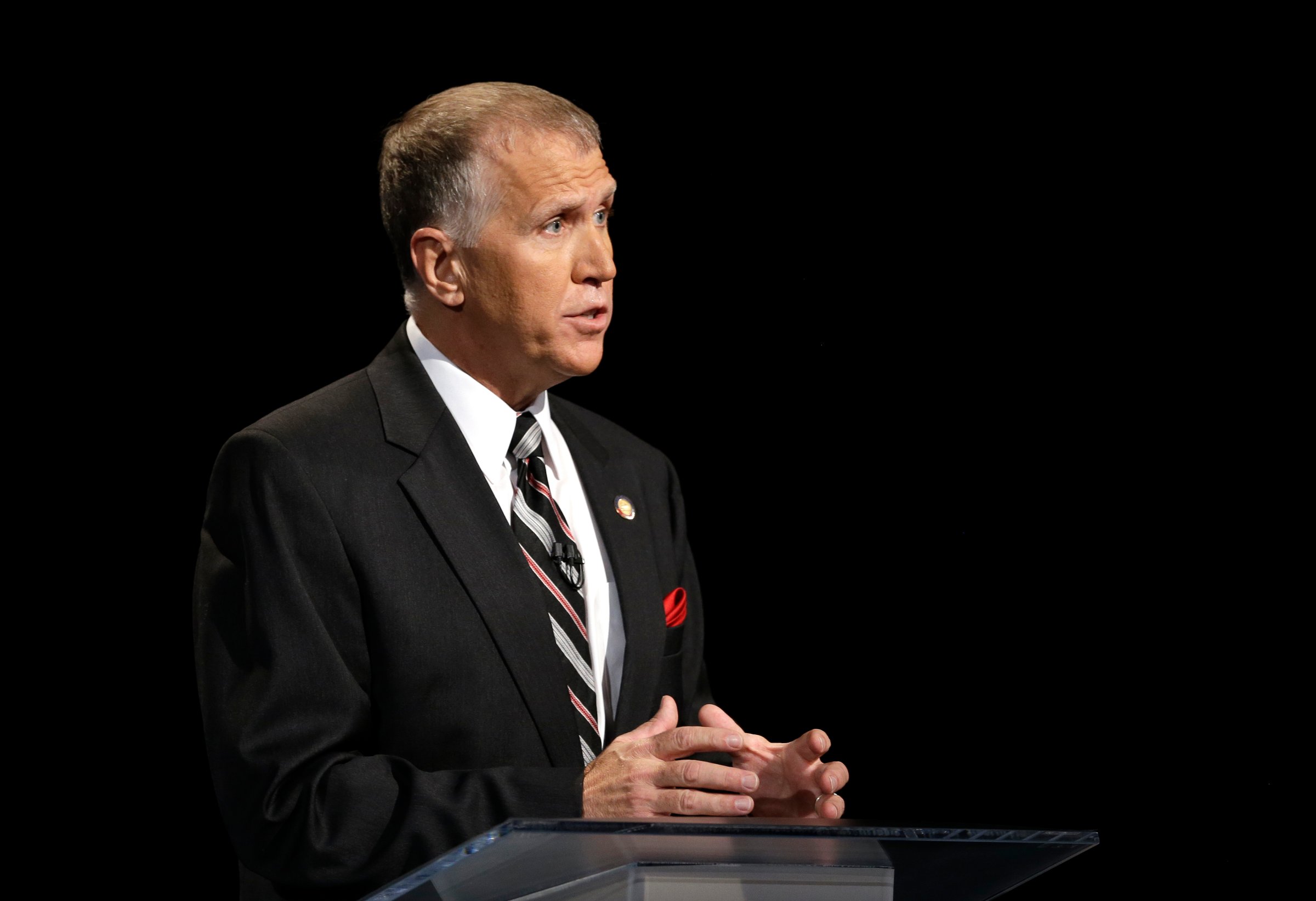
Seven months after the government shutdown deepened divisions within the Republican Party, GOP voters head to the polls Tuesday for the first major 2014 contests between the party’s feuding factions.
The marquee matchup is in North Carolina, where state house speaker Thom Tillis needs to nab 40% of the GOP primary vote to avoid a painful and prolonged runoff for the party’s Senate nomination. Tillis is hovering around that threshold, according to a survey published Monday by the Democratic firm Public Policy Polling. If he fails to garner 40%, the top two candidates will go to a runoff in July.
That would be a boon for Democrats’ hopes of holding the Senate. The incumbent Senator, North Carolina Democrat Kay Hagan, is considered to be among the most vulnerable this cycle, and an additional three months of internecine warfare would hamper the eventual GOP nominee.
But the race isn’t just an opening skirmish in the battle for the Senate. It’s also an early test for mainstream Republican grandees, who decided last fall to mount an unprecedented effort to defend vulnerable Republican incumbents and defeat shaky right-wing candidates who could jeopardize their chances of retaking the upper chamber in November.
Tillis, who is facing a Tea Party-backed libertarian and a Baptist pastor in Tuesday’s primary, has been buoyed by a tide of television ads run by establishment groups like the U.S. Chamber of Commerce and the Karl Rove-founded super PAC American Crossroads. The Chamber and other Republican-leaning business groups have also spent heavily to defend Ohio GOP Rep. David Joyce, who faces a primary challenge Tuesday from a conservative state legislator in his northeast Ohio district.
These two races are the first of many 2014 contests that pit the GOP’s business-friendly moderates against a Tea Party faction that has alternately empowered and infuriated party elders since rising to prominence in 2010. Over the next month, primary voters across about 20 states are set to cast ballots that may help determine which wing of the party will prevail.
Among the most competitive races are the May 20 primary in Idaho’s Second Congressional District, where Republican Mike Simpson is facing a tough test from attorney Bryan Smith, and the June 3 GOP Senate primary in Mississippi, which sets six-term incumbent Thad Cochran against state senator Chris McDaniel. In both races, the incumbents have benefited from expensive ad campaigns by the Chamber of Commerce, while the challengers are getting big boosts from national conservative groups such as the Club for Growth and the Senate Conservatives Fund.
But apart from select races such as these, Tea Party outfits have struggled in their quest to unseat the cycle’s most vulnerable incumbents in some of the nation’s most conservative states.
Republican Senate leader Mitch McConnell appears to be coasting toward victory in his primary fight against conservative challenger Matt Bevin. McConnell’s top lieutenant, Sen. John Cornyn, sailed to victory in Texas, and Tennessee’s Sen. Lamar Alexander looks set to do the same. Support for the Senate’s immigration bill hasn’t eaten into Sen. Lindsey Graham’s yawning lead in South Carolina. Revelations about Sen. Pat Roberts’ tenuous claims to residency in Kansas don’t seem to have ruined his quest for a fourth term. And in Georgia, two arch-conservative Tea Partiers are lagging behind the rest of the pack in a messy five-way Senate primary.
“They’ve run weaker candidates,” Scott Reed, chief political strategist for the U.S. Chamber of Commerce, says of the Tea Party groups. “They’ve been all talk and very little action.” If the GOP Establishment wins the first wave of primaries Tuesday, it will be a sign that the GOP’s grandees are the favorites in the Republican civil war of 2014.
More Must-Reads from TIME
- Why Biden Dropped Out
- Ukraine’s Plan to Survive Trump
- The Rise of a New Kind of Parenting Guru
- The Chaos and Commotion of the RNC in Photos
- Why We All Have a Stake in Twisters’ Success
- 8 Eating Habits That Actually Improve Your Sleep
- Welcome to the Noah Lyles Olympics
- Get Our Paris Olympics Newsletter in Your Inbox
Write to Alex Altman at alex_altman@timemagazine.com